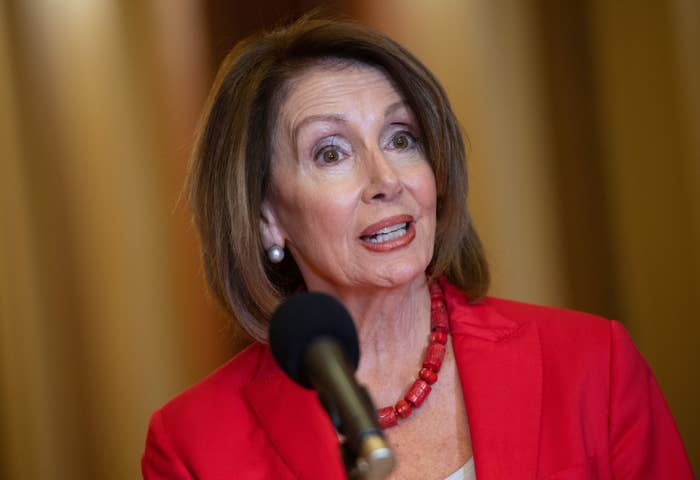
WASHINGTON — House Democrats Friday announced their plan to try to block President Donald Trump’s unprecedented national emergency to build a border wall.
Texas Rep. Joaquin Castro introduced the legislation to terminate Trump’s national emergency. While it is expected to pass easily through the Democrat-controlled House, it still faces an uncertain future: It will go on to the Republican-controlled Senate, where it needs the support of at least four Republican senators, and it would also require the president’s signature. Both the House and Senate would then need a two-thirds majority to override Trump’s expected veto.
“What the president is attempting is an unconstitutional power grab,” Castro, who is the chair of the Congressional Hispanic Caucus and sits on the House Foreign Affairs and Intelligence committees, told reporters Friday morning. “This is an historic power grab, and it will require historic unity by members of Congress, Republican and Democrat, liberal and conservative, to counteract the president’s parasitic movement.”
The resolution was introduced with broad Democratic support in the House of Representatives, with more than 220 cosponsors, including one Republican (Michigan Rep. Justin Amash). In a letter to other lawmakers earlier this week, Speaker Nancy Pelosi vowed Democrats would “move swiftly” to pass the legislation. Pelosi said Friday the plan is for the House to vote on it Tuesday.
The bill will go through an expedited congressional process outlined in the National Emergencies Act, giving it a fast track for consideration through both chambers of Congress, meaning Senate Majority Leader Mitch McConnell cannot block it from coming up for a vote.
Trump declared the national emergency last week after Congress refused to approve the money he wants to build a border wall, ending a prolonged fight that led to a government shutdown and threatened another. The national emergency is aimed at reallocating money, some of which was originally intended for Department of Defense military construction projects, to cobble together more than $8 billion to put toward the wall.
Democrats have argued the unprecedented national emergency undermines the role of Congress and separation of powers, and it is already facing multiple legal challenges. On Friday, Pelosi continued to hold the door open to legal action on the Democrats’ behalf should the joint resolution fail, but she did not go into detail on further actions.
“We have five committees of jurisdiction that might have reason to file one thing or another,” Pelosi said. “They’ll be working in a very focused and strategic way as to what we might do next in that regard, but I’m not announcing any of that today. Right now, today is about this resolution.”
Several Senate Republicans initially balked at the idea of Trump declaring a national emergency, fearful of not only the repercussions of such an expansion of presidential powers but also what a future Democratic president could do with them. It’s unclear at this point where many of them stand on the House Democrats’ resolution.
But Republican Sen. Susan Collins of Maine has already said she would be supportive of the Democrats’ resolution, telling reporters that “if it’s a clean disapproval resolution, I will support it.”
Castro said he plans on making calls to Republicans and will continue to make the case in person when lawmakers return from recess next week. Pelosi and Castro noted that they are not just pursuing Democrats’ support, with both pointing to the fact that their messaging has been to members of both parties.
Even if the joint resolution manages to gain the Republican support it needs in the Senate, White House adviser Stephen Miller signaled Trump would veto it, saying “obviously the president is going to protect his national emergency declaration” in a Fox News interview last weekend.
Asked on Friday if he would veto the resolution if it passed, Trump himself said yes. "Will I veto it? 100 percent. 100 percent. And I don't think it survives a veto. We have too many smart people that want border security, so I can't imagine if it survives a veto, but I will veto it. Yes," Trump said.
Once the House has passed the legislation, the Senate will have 18 calendar days to consider it.
UPDATE
This article was updated with comment from the president.

